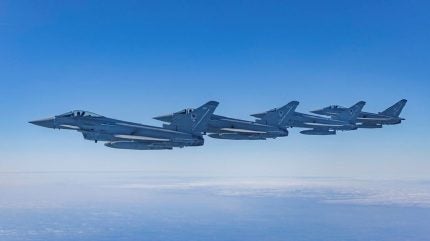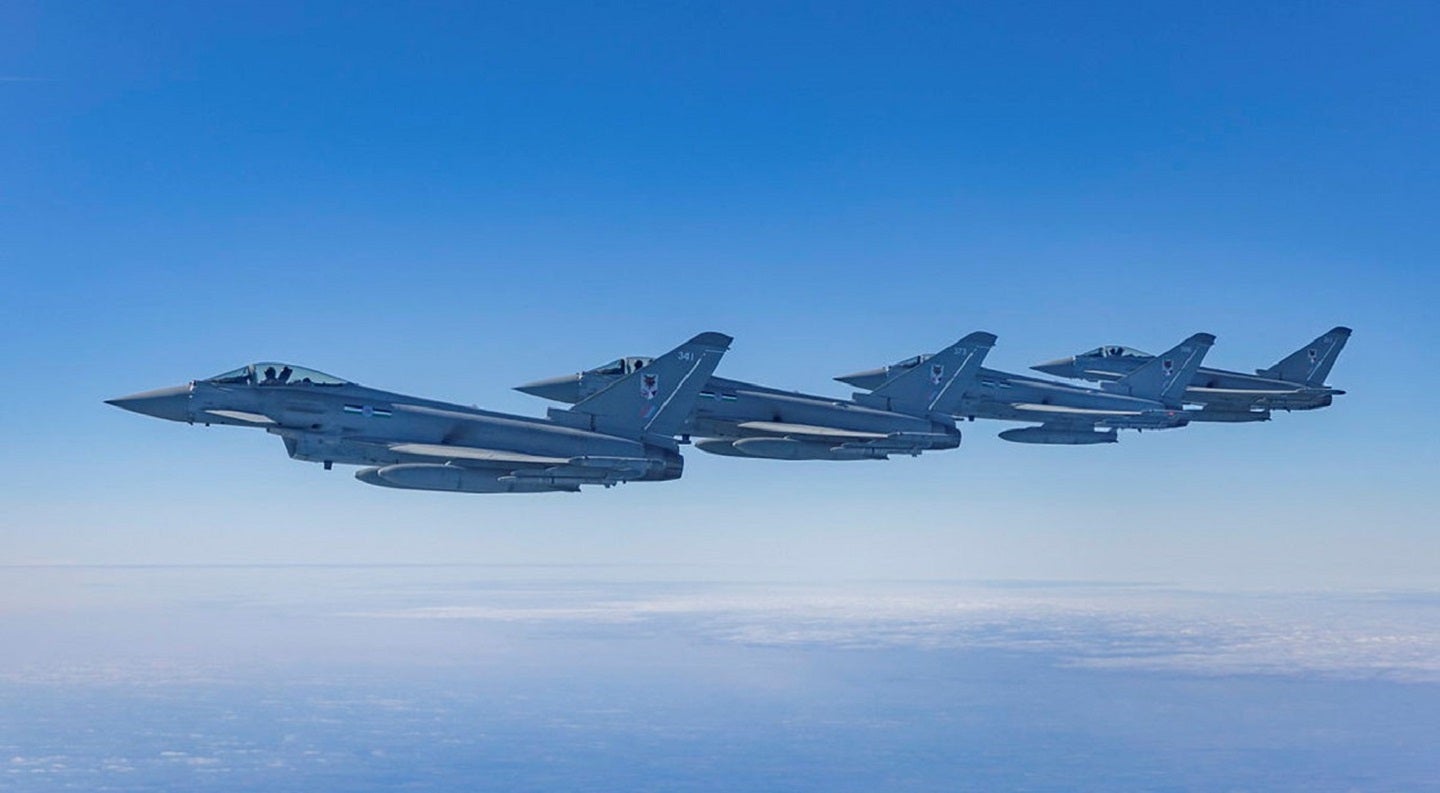
The British Ministry of Defence (MoD) announced that Royal Air Force (RAF) Typhoon fighter jets and P-8A Poseidon submarine chasers are using sustainable aviation fuel (SAF) in routine operations for the first time.
In an update dated August 14, 2024, the government pointed out that this step would lead to a reduction in CO2 emissions and a strengthening of energy security.
The selected aircraft, which will operate from RAF Lossiemouth base in Moray, north-east Scotland, will use a mix of conventional and sustainable aviation fuels as they take to the skies to defend the UK and its allies.
This step is made even more significant by the breakdown of fuel consumption across the defense sector: currently, almost two-thirds is accounted for by aviation fuel.
SAF content and supply contract
World Fuel Services, a Florida-based sustainable fuels supplier, supplied the RAF with four million litres of blended sustainable aviation fuel between November 2023 and February 2024. A follow-on contract was signed with the Ministry of Defence at the end of March for a further five million litres over the next few months.
The fuel supplied contains about 40% SAF from the Finnish oil refinery Neste, with the renewable part of the feedstock being obtained from used cooking oil or animal fat.
Access the most comprehensive company profiles on the market, powered by GlobalData. Save hours of research. Gain a competitive advantage.

Company profile – free sample
Your download email will arrive shortly
We are confident in the unique quality of our company profiles, but we want you to make the most beneficial decision for your business, so we offer a free sample that you can download by filling out the form below.
By GlobalData
Typically, SAF ingredients may also include hydrogenated fats and oils, wood waste, alcohols, sugars, household waste, biomass and algae.
“The groundbreaking use of sustainable fuels in routine operations shows how we are delivering on our top priority of keeping the UK safe without compromise, while reducing our carbon footprint,” said Lord David Coaker, UK Defence Secretary.
SAF progress in the RAF
While this is the first time the service has used SAF for routine operations, it is not the first time an RAF platform has used SAF.
In April 2023, a British Voyager tanker was powered by a 43 percent SAF blend during an aerial refuelling mission with Typhoon fighters as part of a planned training exercise. It flew from RAF Brize Norton and operated over the North Sea before returning to its home base via Farnborough.
This followed the RAF’s first air-to-air refuelling mission with SAF in January, transferring from a Voyager tanker to Typhoons and an old C-130 Hercules.
As early as November 2022, an RAF Voyager unit deployed 100% SAF in a 90-minute flight demonstration.
Despite the proven use of the fuel, the Ministry of Defence continues to see difficulties in introducing certain types of SAF. According to the Government’s Operational Energy Strategy for Defence, published in December 2023, it states:
“Sectors such as aviation and shipping are more difficult to decarbonise due to the energy intensity required. They will continue to use fossil fuels to some extent for the foreseeable future.”


